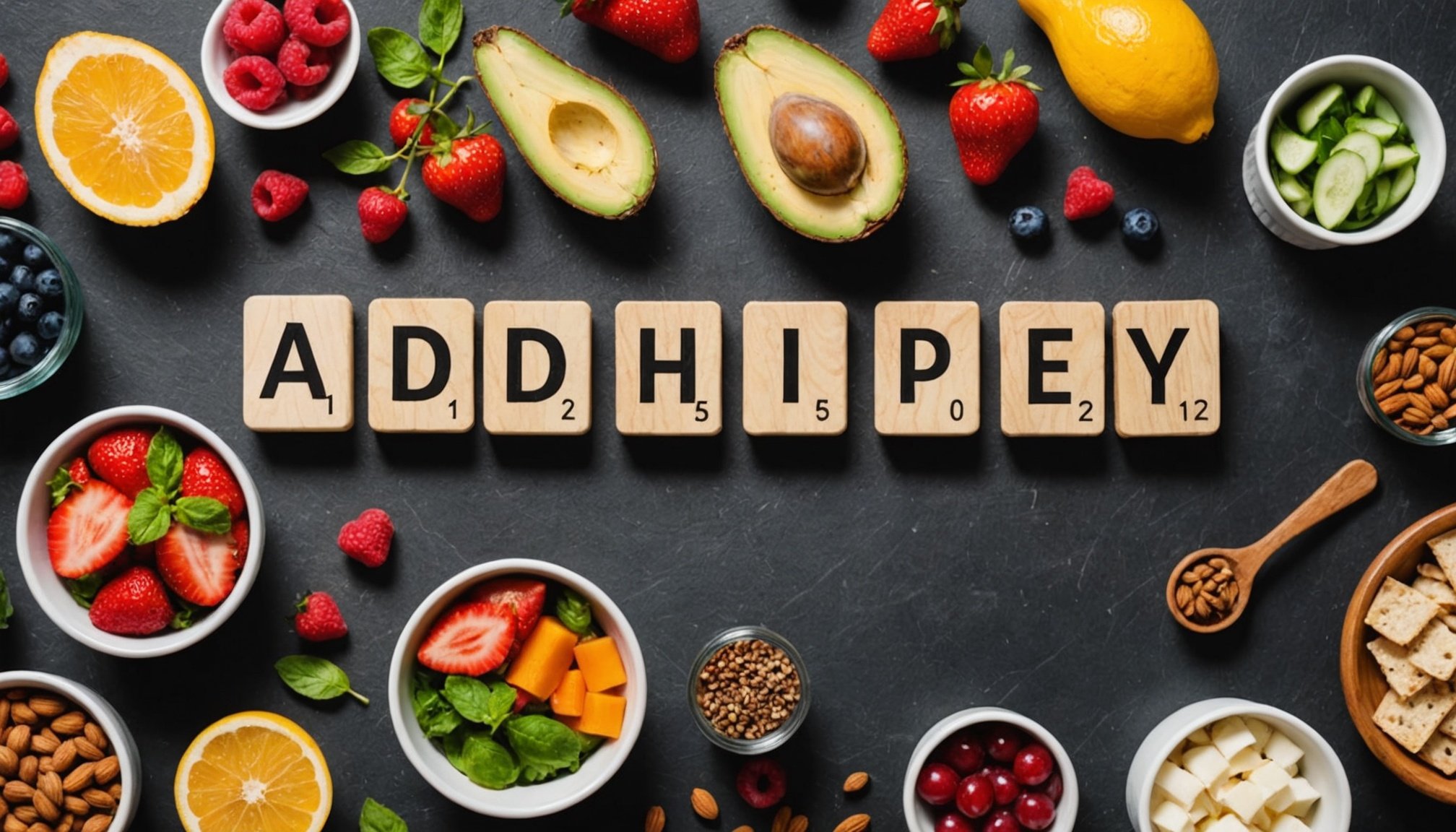Overview of ADHD and Dietary Management
ADHD, or Attention Deficit Hyperactivity Disorder, is a neurodevelopmental condition characterised by inattention, hyperactivity, and impulsivity. It’s crucial to understand the potential connection between diet and behaviour for effective ADHD management. Recent insights suggest that dietary management may play a role in alleviating symptoms and improving mental health.
Nutrition is a foundational element in maintaining overall mental well-being. Individuals with ADHD might benefit significantly from understanding the relationship between nutrition and brain function. An optimal diet can potentially influence behavioural patterns and cognitive functioning, which are core aspects affected by ADHD.
Have you seen this : Can Plant-Based Diets Significantly Lower Your Risk of Type 2 Diabetes?
Emerging research highlights specific nutritional deficiencies and sensitivities that might exacerbate ADHD symptoms. The importance of addressing these through dietary management cannot be overstated. Tailored dietary interventions, emphasising nutrient-rich foods, are recommended to support brain health and stabilise mood and concentration.
By exploring effective dietary management strategies, individuals or caregivers can better address the nutritional needs associated with ADHD. Understanding the importance of nutrition in mental health lays a foundation for developing a structured dietary plan. This approach may ultimately enhance the quality of life for those affected by ADHD.
Also read : Unlocking Relief: The Power of Hypnotherapy Techniques for Chronic Pain Management
Beneficial Dietary Patterns for ADHD
Exploring specific dietary patterns can prove advantageous in managing ADHD. Among these, the Mediterranean diet stands out for its potential benefits. This diet is abundant in fruits, vegetables, whole grains, and healthy fats, which are nutrient-dense components that may influence brain health positively.
Mediterranean Diet and ADHD
The Mediterranean diet has been linked to improved cognitive function and behavioural outcomes. Rich in omega-3 fatty acids from fish and nuts, this diet supports brain health, crucial for those managing ADHD.
Elimination Diets
Elimination diets focus on removing specific sensitive foods from one’s diet, identifying and reducing possible causes of exacerbated ADHD symptoms. This approach is tailored, removing allergens or additives that may impact behaviour.
Omega-3 Fatty Acids
Omega-3 fatty acids are recognized for their role in maintaining brain health. These essential fats, found in foods like salmon and flaxseeds, are an important component of dietary strategies aimed at improving ADHD symptoms. Research suggests that adequate omega-3 intake correlates with enhanced concentration and mood stabilization, creating more favourable conditions for ADHD management.
Scientific Evidence Supporting Dietary Changes
Research studies have provided compelling evidence of the impact of diet on ADHD symptoms. A comprehensive analysis of dietary intervention shows that nutritional changes can lead to significant behavioural improvements. For instance, specific studies link an increase in micronutrients and omega-3 fatty acids to enhanced cognitive functioning and reduced hyperactivity.
Understanding the differing dietary approaches in research is essential. Some studies focus on the elimination of artificial additives, while others emphasise whole-foods-based interventions. Both approaches demonstrate varying degrees of effectiveness, suggesting that personalised dietary regimens may be beneficial.
Expert opinions on nutritional interventions generally support the idea that diet and ADHD management are interlinked. Nutritionists and paediatric experts advocate for nutrient-rich diets as part of a multi-faceted treatment plan. They highlight that dietary changes should be tailored to individual needs to maximise ADHD management.
In conclusion, the growing body of evidence suggests that dietary changes are a viable component of ADHD treatment. Parents and caregivers should consider consulting with health professionals to develop an appropriate dietary intervention strategy that complements other ADHD therapies.
Practical Dietary Strategies for Implementation
For individuals seeking to adopt healthier dietary strategies for ADHD, incremental changes can be highly beneficial. Transitioning to a more balanced diet begins with incorporating a variety of fresh, whole foods into meals.
Meal planning is fundamental. Creating a weekly meal plan filled with nutrient-rich foods ensures consistent nutrition, which is crucial in ADHD management. Include a colourful array of fruits, vegetables, and lean proteins to maintain interest and provide balanced meals.
Involving children in the meal preparation process can transform dietary changes into a family activity, fostering engagement and motivation. Kids are more likely to try new foods when they’re part of the cooking process. This engagement not only supports dietary shifts but also enhances the child’s overall connection with food.
Organising family meals around set times encourages routine, which can aid in reinforcing behavioural improvements. A structured dining environment promotes focus and reduces mealtime stress.
By embracing these practical tips, families will find the process of meal preparation and dietary management more approachable, creating a supportive backdrop for managing ADHD symptoms effectively.
Challenges and Considerations
Adjusting dietary habits for ADHD support can present several challenges. One common obstacle is the potential resistance to change, particularly from children who may be accustomed to certain types of food. Instant changes can lead to pushback, making patience and gradual adjustments essential.
Behavioural responses to new dietary patterns can vary. Some individuals with ADHD might initially experience heightened symptoms due to sensitivity to dietary changes. Monitoring the reactions to new foods and being flexible with dietary adjustments can help mitigate these responses, ensuring a smoother transition.
An effective support system is crucial in navigating these dietary challenges. Engaging family members in the process of dietary changes ensures consistency and encouragement, fostering a positive environment for transformation. Support groups or professional guidance from nutritionists can provide valuable insights and tailored advice.
Consider the uniqueness of each individual’s situation, including allergies and personal preferences, when developing a nutrition plan. This customisation can enhance adherence to new dietary patterns, facilitating a successful implementation focused on the well-being and ADHD management of the individual.











